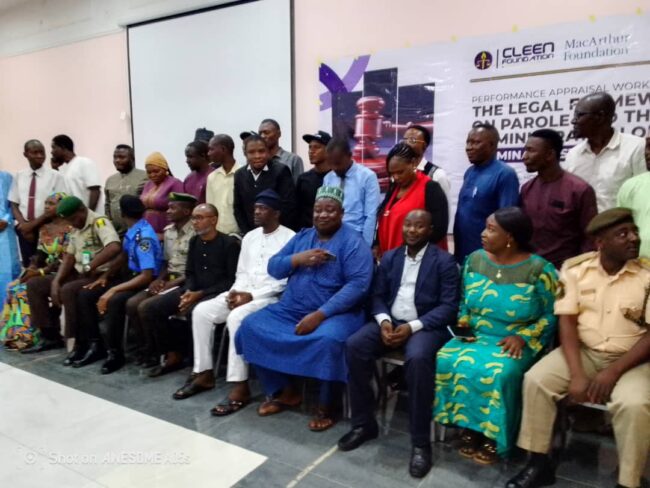Parole has been described as a critical component of Nigeria’s judicial system that is aimed at rehabilitating offenders and reintegrating them into society as law-abiding citizens.
The assertion was made by the Executive Director of CLEEN Foundation, Gad Peter during the opening of a two-day performance appraisal workshop on the legal framework of parole and the administration of criminal justice law in Nigeria, holding in Bauchi.
He therefore made a strong advocacy for a sound Legal framework and effective administration in the parole component of the Administration of Criminal Justice Law as part of efforts to decongesting Custodian Centers across the country.
Gadau Peter stressrd that, “Parole reflects a balance between punitive measures and the need for rehabilitation, recognizing that the potential for reform and positive change exist within every individual.”
According to him, “The administration of justice is the cornerstone of any society that upholds the rule of law and our collective efforts are pivotal on ensuring that this cornerstone remains robust and effective.”
“This workshop provides an invaluable platform for us to engage in critical discussions, share insights and evaluate the current state of our legal framework on parole and it’s broader implications on criminal justice administrator in Nigeria,” he said
Speaking on the mechanics of the parole system, the Finance Officer of CLEEN Foundation, Chijioke Kaja said that parole is a new correctional measure in the Nigeria Penal system.
He added that before 2015, inmates could be released before the expiration of their term of imprisonment only if they were granted pardon by the Governor of a state or the President.
He however said that this has changed with the coming into force of the the Administration of Criminal Justice Act of 2015 (ACJA).
He stressed that the ACJA empowers courts, upon the recommendation of the Comptroller General of the Nigeria Correctional Service to release inmates on parole.
Chijioke Keja said that, “The ACJA states conditions that the Comptroller-general Nigerian Correctional Service must consider before he recommends inmates for parole.
These according to him includes that the inmates must have been of good behavior, only inmates sentenced to imprisonment are qualified for parole, inmates must have served not less than one third of his term where he is sentenced to a minimum of 15 years imprisonment or where he is sentenced to life imprisonment.
The workshop had in attendance, the representatives of the Nigeria Police Force, Correctional Service, Nigeria Bar Association, Media, Nigeria Legal Aid Council, Bauchi State Ministry of Justice, Immigration Service, Lawyers and various Civil Society Organizations, including the International Society of Zaar Intellectuals (ISOZI), among others.
ALSO READ THESE TOP STORIES FROM NIGERIAN TRIBUNE
WHO announces global resurgence of cholera
